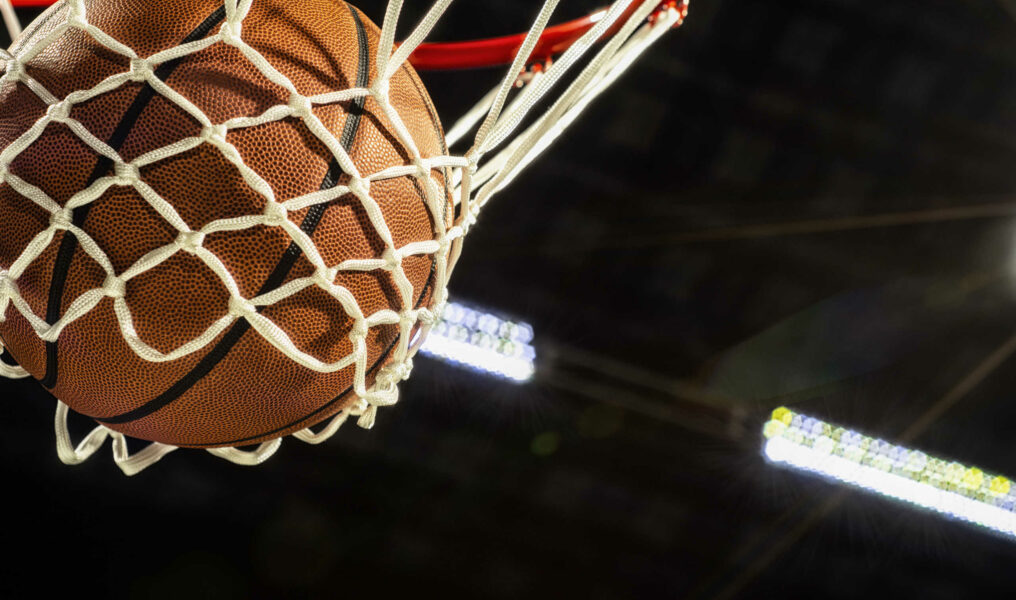While Pride month is halfway over, the Detroit Pistons are not slowing down with their message of LGBTQ inclusion. This week, the Detroit Pistons held their third virtual Pride celebration, an Athletes for Equality Panel hosted by Hudson Taylor, founder of Athlete Ally.
"Everyone has come to tonight's panel because Pride is both personal and important to them," Taylor said. "We each have a connection to this conversation in some way."
Taylor was accompanied by Chris Mosier, the first transgender athlete to represent the U.S. in an international competition, Detroit Pistons radio analyst Rick Mahorn, the first openly gay athlete in the NBA Jason Collins, Athlete Ally member Kenneth Faried and openly lesbian athlete Sharnee Zoll-Norman.
The panel discussed the roots of homophobia and transphobia in sports, as well as covering topics on why Pride is important to each athlete, how coaches can help include the LGBTQ community, the next steps in advocacy and more.
In regards to the importance of Pride to him, Faried replied, "My mom is gay, and, for my whole life, I had to deal with that. I'm going to protect her and stand up for her and for her rights. She deserves to be treated like a normal human being, like everyone else."
Taylor was especially interested in discussing the restraints put on male athletes to come out of the closet and see what work is needed so that other athletes, like Collins, can feel comfortable sharing their sexual orientation.
"Well, there's a lot. I got to tip my cap to women. They've been leading the way in this for decades, starting with Billie Jean King," Collins responded. "With regards to male athletes, we are still waiting on that next male athlete to step forward. We're waiting for the day where it becomes like when Elena Della Donne came out before the Rio Olympics and everyone was like, 'OK, cool. Go win a gold medal.' So, I hope that male athletes who are closeted will look at my example."
Tyler then pivoted the conversation toward Zoll-Norman and Mahorn, as they have experience being both players and coaches. Tyler was interested in hearing from their perspectives when he asked what role do coaches have in making sports a place where LGBTQ athletes can be themselves.
"I am coaching 17-22-year-old women … they'll follow my lead. I am the adult in this situation and if I allow for it to be a safe space and let them know [that] no matter what, we're here," Zoll-Norman replied. "We're a family and with that family, you protect [them.] You have to allow people to feel comfortable in who they are. You know how it feels to be that young."
Mahorn replied, "It is about that safe space — who you are comfortable talking to or the comfortability of being able to share. My job is not to hate. My job is to be the person who loves everybody. They just want to play basketball, go out and enjoy themselves. I am not judging. I'd wanna be respected just like I respect them."
Tyler shifted the conversation towards the conservative legislation restricting the rights of trans athletes, from laws legally preventing them from using locker rooms to unequal access to health care.
"Almost half of the states in the United States had a government bill that was put forward from conservative legislatures attempting to restrict or completely ban transgender student-athletes — specifically transgender girls- from playing sports with girls at the high school and college level," Mosier said. "Idaho's law actually restricts any transgender girl or anyone assumed to be transgender from participating in sports."
To conclude the panel, Tyler brought up the importance of advocacy for equality, both racial and LGBTQ. He questioned the panelists about what the next step was, how to keep the momentum going forward and what calls to action society has.
"I know it sounds a bit cliché, but we have to educate ourselves- on the plights of other people. So while that be people of color or LGBTQ+, understanding the fights that we have gone through, that it is not something we are just complaining about," Zoll-Norman said. "It is something that people live and experience every single day."
For more on Pistons Equality Pride week, visit www.pistons.com.










